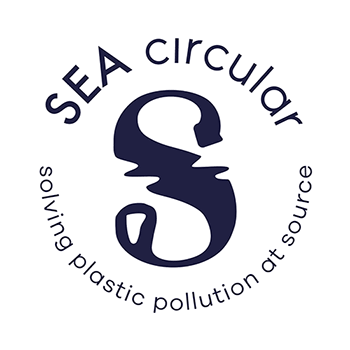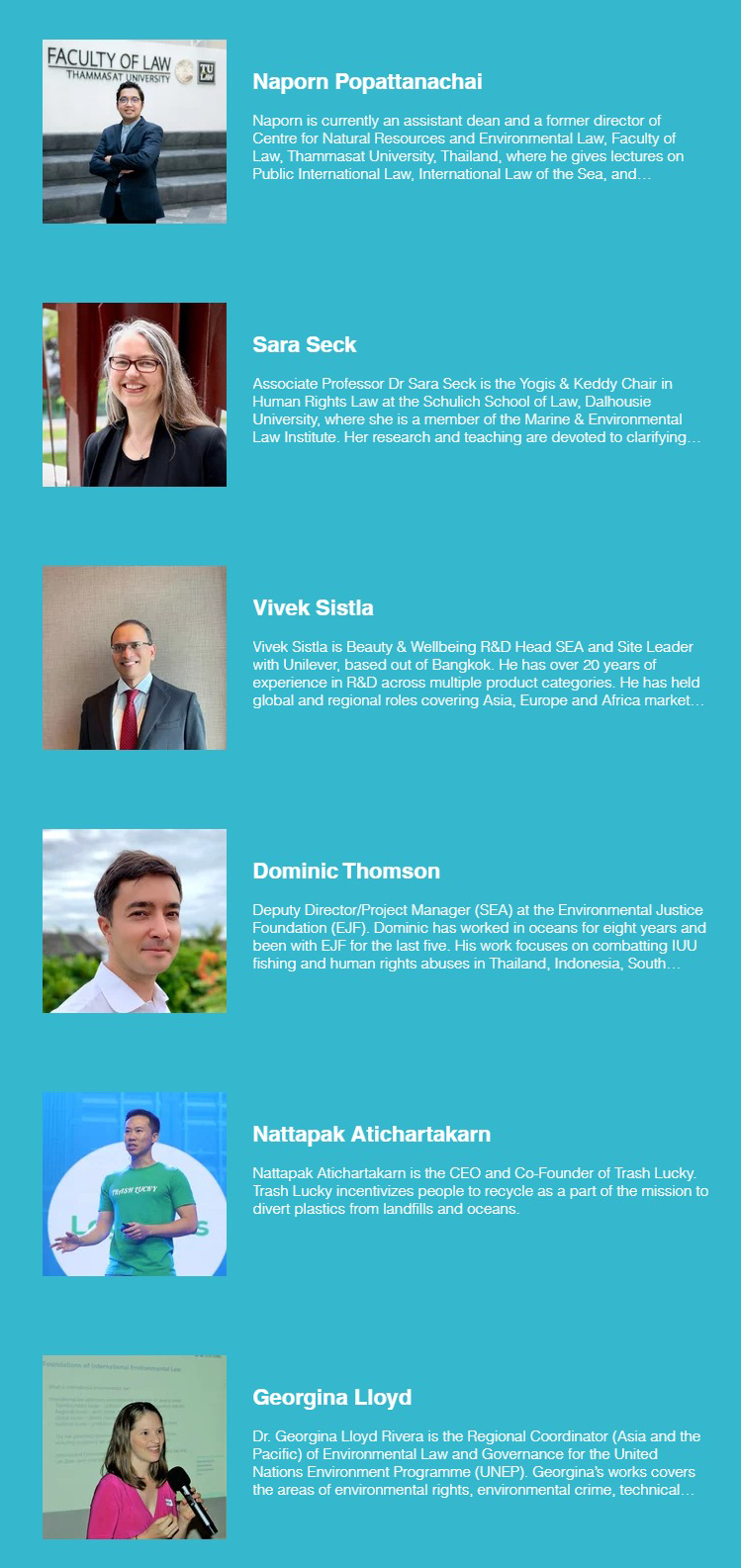
United Nations Responsible Business and Human Rights Forum, Asia-Pacific
A Session on Plastic Circularity Through Responsible Business Conduct: Realizing the Right to a Healthy Environment [Day 2, Session 4]
Event Date: Wednesday, 21st September 2022, from 10:45 to 12:00 hrs. (ICT)
Event Location: Bangkok, Thailand
Event Overview: Plastic waste and pollution are threatening ecosystems and livelihoods across South-East Asia. Increasing volumes of plastic waste have led to environmental, social and health impacts, particularly for vulnerable communities. Asia is both a hotspot for plastic pollution as well as a range of innovative measures designed to curb plastic pollution. Businesses are increasingly finding innovative ways to reduce plastic waste and transition to a more resource-efficient and circular economy while new solutions are evolving to improve collection, recycling and capture of plastic waste leakage.
The protection of the environment and ecosystems contributes to the fulfilment of human rights and human well-being, including health, safe, clean, healthy and sustainable environment, an adequate standard of living and decent work. In moving towards a circular value chain for plastics, business strategies should be informed by holistic assessments of social and environmental impacts across value chains, factoring in the rights and gender dimensions of both challenges and opportunities. A systemic approach to achieving more sustainable value chains can contribute to building more prosperous and resilient economies and inclusive societies.
According to the ILO, a sustained 5% annual increase in recycling rates for plastics, glass, wood pulp, metals and minerals could generate around 6 million additional jobs worldwide. For example, 500,000 people are employed in the recycling and waste management sectors in Bangladesh, most of them women. While this sector has an enormous potential to create new jobs, many of the employment in this sector remains largely part of the informal economy in many countries. Workers face serious decent work deficits, such as work-related hazards, discrimination, stigmatization, violence and harassment, low earnings, and long working hours.
International instruments such as the ILO’s MNE Declaration and the OECD’s guidelines for multinational-enterprises provide the guidance and support to drive efforts stakeholders to adopt a holistic approach to addressing plastic waste and their impact on the world of work. This includes helping businesses avoid and address adverse impacts to workers, consumers and the environment that may be associated with operations, supply chains or business relationships; re-skilling of the workforce to meet the demands of new sectors such as the recycling and waste management. Meanwhile, Extended Producer Responsibility (EPR) through a responsible business conduct lens means adopting a holistic approach to the plastic value chain, including the informal waste management sector that contributes an important part in achieving circular economy in developing economies.
Please click here to register.
SEA circular Project in partnership with Dalhousie University has develop training content to inform and sensitize actors in the plastic value chain on a rights-based approach. This training has been rolled out at country levels in cooperation with project implementing partners in Indonesia and the Philippines. Through this sharing and dialogue session, we intend to provide information on the training and showcase a number of relevant case studies used as part of the training.
The dialogue and discussion part of the session we hope will focus on the interconnectedness of responsible business conduct, EPR, and how a rights-based approach can support the achievement of plastic circularity in an inclusive way, to gradually mainstream the informal waste management sector towards green jobs.
This session aims to inform and share progress on efforts to sensitize actors in the plastic value chain on a rights-based approach and to discuss what actions are needed to help businesses, governments, and communities to shift away from business as usual to an inclusive circular and more sustainable and resource-efficient plastics economy.
Objectives:
- To provide a glimpse into the HRBA training material produced through the collaboration of the SEA circular Project with Dalhousie University aimed at actors in the plastic value chain in the South-East Asian Region.
- To obtain perspectives from OECD, ILO, UNDP, the private sector (represented by a speaker from a relevant Business Membership Organization) and the informal waste sector on how the topics of responsible business conduct, EPR and rights are connected and how a rights based approach can deliver a healthy environment to all stakeholders, including to those that are most vulnerable.
Guiding Questions:
Panellists will reflect on the following questions.
- Reflect on best practices to respect the right to a safe, clean, healthy and sustainable environment.
- Panellists can discuss examples of their experiences of utilising human rights due diligence, internal decision-making and effective remedies to protect the rights of stakeholders.
- Are there any examples of effective state policies or corporate policies that ensure public participation from stakeholders?
- How can state policies be strengthened to ensure that the above is being complied with? What are their experiences?
- Proactive steps that businesses could take to avoid impacting vulnerable groups? Reference can be made to the effects of pollution from UNEP’s guidance document.
- What tools and initiatives can help companies identify areas of non-compliance (i.e., within all operations, including supply chains and subsidiaries)
To register, please click here or scan the QR code below.
Events


